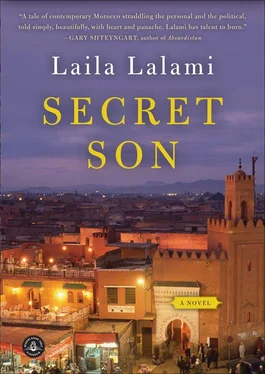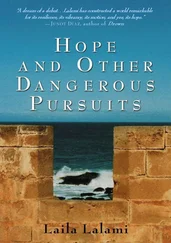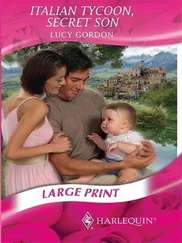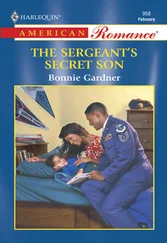The only constant in his life was his mother. She had played the role of the widow, when she had never had a husband; the role of an orphan, when all along she had had a father. She had done it for him. She had lied her way through his life, and yet she had also given him the only certainty in it — her love. In the end, she was his only home.
It was an inexpressible relief to find out the whole truth, but suddenly it did not seem to matter as much as it once had. Farid Benaboud’s life hung in the balance, and that was more immediate, and far more critical, than any story Youssef’s mother could tell. Benaboud’s troubles, Youssef thought, began and ended with the truth, too. He had angered government ministers with his articles about the “bonuses” they received for privatizing state companies; he had engaged in a public battle with Parliament members over their corruption and dereliction; he had persistently criticized the Party for taking over the social life of Hay An Najat; he had exposed Hatim’s murky finances. He had written the truth, or at least what he thought was the truth. Now he would pay for it with his life.
Youssef was taken out of his reflections by his mother’s voice. It was best to do nothing, she said. To just stay away from the Party. Stay away from the Oasis. Stay home with her. The police were watching Hatim, and someday very soon they would arrest him for one crime or another. It was important not to be at the wrong place at the wrong time.
If the police knew about the assassination of Farid Benaboud, then they would stop it before it happened. For three glorious days, that simple hope numbed Youssef’s guilt at having stayed quiet, and silenced his concern about Farid Benaboud. He watched satellite news channels constantly, expecting to hear news about an arrest. Then the eve of the “operation” came, and nothing had been done. Despite having an informant inside the Party, maybe the police did not know of Hatim’s exact plans, since Hatim had been so discreet. Youssef began to wonder whether anything, or anyone, could save Benaboud.
18. THE DAY OF THE MURDER
THE BOULEVARD WAS HEAVY with traffic. Drivers strained to make their way through the single open lane, while workers in blue uniforms fixed a billboard advertising a music festival. The sound of exasperated car horns abated at the roundabout, where the water fountain ran and where flocks of pigeons came to drink and rest in between their peregrinations. At the top of the street, the Grand Hotel sat, its gigantic glass doors closed, reflecting the rays of the sun. Standing on the pavement across from the building, Youssef was blinded by the bright light.
He had left the house early, quietly closing the door behind him. Moussa had given him the knife and the disguise — a woman’s flowing jellaba and veil — and then taken him downtown by car, dropping him off two blocks from the hotel. Youssef had to walk the rest of the way. Periodically he looked behind him; he was sure Hatim had sent someone to follow him all the way to the door. As he neared the hotel, he watched carefully for signs of the police, for signs that his silence would not cost a man his life.
Now, raising his hand to shield his eyes from the sunlight, he surveyed the scene carefully. Four men were seated in a parked Peugeot. The two in front wore dark sunglasses and turned their heads back, listening to one of their companions in the back. Youssef thought — he hoped — that they were plainclothes officers, but after a few minutes the driver started the engine and eased his car out of the parking spot and onto the street. In another minute they were gone.
He grew light-headed. Fear and hunger gripped his stomach like a fist — he had not eaten anything all morning. He retreated under the shade of a big oak tree and placed his hand on its trunk to steady himself. He took several deep breaths, inwardly repeating the mantra he had held on to for the past few days: Everything will be all right. He turned to watch the street once again. Time passed. Then a white van with no discernible logo pulled into an empty space on the right corner. The driver sat still, and no one came out of the vehicle. With each passing minute, Youssef became more convinced that it was the police. He was jubilant. This is it, he told himself. With the police here, everything would be all right. Farid Benaboud would be safe.
Just then a young man in a black suit walked up the street on the left, heading for the entrance of the Grand Hotel. Something about the way he carried himself seemed familiar. Youssef stepped out from under the tree to get a better look, his eyes straining against the white sunlight. As if realizing that he was being watched, the man in the black suit glanced back. It was Amin. Youssef’s hand covered his mouth, muffling a gasp that would attract attention. Amin had been persuaded to carry out Hatim’s plans, too. He was the second assassin.
There was a moment of silence and stillness, when even the wind seemed too afraid to blow through the trees. Youssef felt a bead of sweat travel down his spine, until it lodged itself in a hollow between his skin and the inside of his waistband. He felt it dissolve against the fabric, just as new beads were forming on his forehead, under his armpits, on the back of his neck, and between his toes. He was assaulted by these sensations and upset with his body for registering them at such a moment. He needed to think, but he could not focus under the glare of the sun and in the oppressive heat.
Instinct made him cross the street and run inside. He did not know what he wanted to do, but he knew he could not let Benaboud die, any more than he could let Amin kill. Coming in from the sun, he was momentarily blinded. He stood in place, waiting for his eyes to adjust. He took in the cool, air-conditioned air. He tried to find his bearings. The reception desk was on the right, the cashier was on the left, and there, past the lobby, was the café, Chez Momo. He walked through the lobby in quick steps, afraid one of his former co-workers might recognize him in spite of the jellaba and the veil.
The café smelled of steamed milk and cigarettes and cut flowers. At a table by the window, a handful of socialites smoked and spoke in loud voices. A couple whispered in a corner. Under the gilt-framed mirror, three men in casual clothes sipped coffee. A woman sat by herself, reading the newspaper. And at a table at the other end of the café, almost hidden from sight by a potted plant, sat Farid Benaboud. He was talking animatedly with an older man, a bald fellow who sat back in his chair, his legs spread far apart.
Scouring the café, Youssef saw no sign of Amin. Where had he gone?
A waiter brought an ice cream sundae for Benaboud and an espresso for his companion. Benaboud’s friend reached for the cup and knocked it over, the black liquid spilling on the table. Gasping audibly, he blotted the coffee with his napkin and steadied the cup. Benaboud offered his napkin, but his friend waved his hand and got up to go to the bathroom. Now alone, Benaboud slid his spoon into his ice cream, scooping out the cherry on top. This little man, who had spoken so forcefully and seriously about the country and its problems, seemed childlike now, completely lost in the simple pleasure of a goblet full of ice cream.
The door to the bathroom swung open again, and out came Amin. Without looking around him, he walked over to Benaboud’s table.
“Amin,” Youssef called.
At the sound of his name, Amin turned, but he did not show any sign of surprise at seeing a tall figure in a white jellaba and veil. It was as though this interruption was part of a script. He took two more steps and pulled out a knife.
“Wait!” Youssef yelled.
All the café’s patrons turned to look at Youssef. Amin stuck the knife in Benaboud’s neck, the sound of it so soft that no one heard it. Then the dark jet of gushing blood caught the attention of the woman reading the newspaper, and she screamed and pointed. Everyone turned to look. In the middle of the confusion, one of the three men at the table nearby pulled out a gun and shot Amin. Screams of terror erupted as blood and bits of brain spattered on the walls. People stampeded out of the café.
Читать дальше












